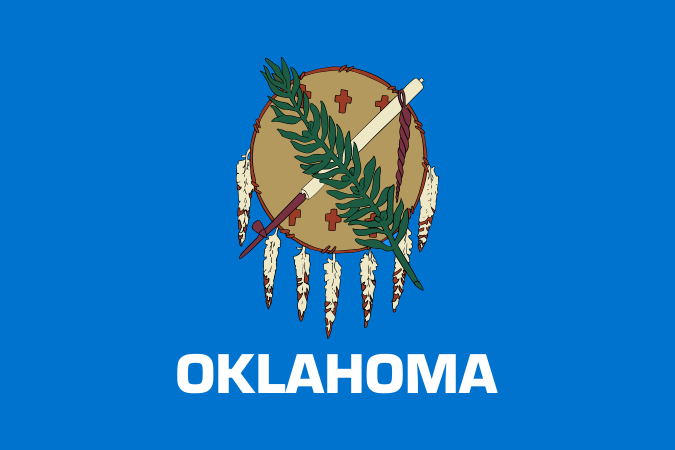State Question 805 qualified for the ballot on July 29, after the state supreme court had found that the campaign submitted 248,521 valid signatures and after the 10-day challenge period ended on July 28 without any signature validity challenges filed. Yes on 805, sponsors of the amendment, turned in 260,000 signatures to the Secretary of State’s office on June 1.
The measure would amend the state constitution to prohibit a convicted person's former felony convictions, except for violent felonies, from being used to "enhance the statutorily allowable base range of punishment." In other words, the measure would not allow a convicted person's sentence to be made longer or harsher due to past felony convictions.
The measure would not apply to those who have ever been convicted of a violent felony. Such offenses include assault, battery, murder, manslaughter, kidnapping, human trafficking, burglary, robbery, child abuse, rape, rioting, arson, terrorism, and more.
The initiative would provide for sentence modifications for persons convicted of a felony with a sentence that was enhanced due to former felony convictions and which resulted in a sentence that is greater than the maximum sentence currently allowed for such felonies.
The Yes on 805 campaign said, "Repeat sentence penalties, marketed as so-called 'sentence enhancements' during the tough-on-crime era, became popular when it was thought longer sentences would deter people from crime and lower recidivism, but data have shown that is just not true. The best research shows that long sentences do not make us safer and reducing these sentences will strengthen our economy and reunite families without weakening public safety. We already have evidence this reform will work in Oklahoma. SQ 780, which passed in 2016, lowered sentence lengths for several property offenses such as theft. Since then, property crime has fallen 3% while Oklahoma’s prison population declined by 10%."
State Question 780, on the ballot in 2016, changed certain non-violent drug- and theft-related crimes from felonies to misdemeanors, which come with a maximum penalty of one year in prison and a fine of $1,000. The measure reduced the number and duration of state prison sentences for those crimes. The measure was approved by a vote of 58% to 42%. The prison cost savings brought about by State Question 780 were earmarked according to the companion initiative, State Question 781. State Question 781, which was also approved, allocated the funds made available by the prison cost savings to counties in proportion to their population. The funding could be claimed by privately-run rehabilitative organizations that provide drug and mental health treatment, job training, and education programs.
The Oklahoma Council of Public Affairs, which describes its mission as "advancing principles and policies that support free enterprise, limited government, individual initiative, and personal responsibility," conducted a fiscal analysis of State Question 805. The group concluded that the measure would "reduce Oklahoma’s prison population by 8.5% over the next 10 years. That would reduce state expenses between $45 million and $186 million, with expected savings of at least $142 million. Taxpayer savings of up to $27 million per year would continue indefinitely into the future."
Oklahoma Governor Kevin Stitt (R), said, "Trying to put this into our state’s constitution, it peels back enhancements for DUIs, human trafficking, domestic violence — some of the things I don’t think we need to put into our constitution." Candida Manion, executive director of the Oklahoma Coalition Against Domestic Violence and Sexual Assault, said, "When abusers aren’t held accountable, the violence escalates and that’s when they end up killing someone. In Oklahoma, we don’t hold offenders accountable already, but whatever was there, [SQ 805] will remove that, making it worse."
One other measure is certified for the ballot in Oklahoma: State Question 814. The measure would decrease appropriations made to the state's Tobacco Settlement Endowment Trust (TSET) Fund and direct the legislature to make appropriations to secure federal matching funds for the state's Medicaid program. State Question 802, which expanded Medicaid in the state, was approved by voters in June.
Two other 2020 initiatives were cleared for circulation in Oklahoma. State Question 808 would create a constitutional right to consume cannabis and require those convicted of marijuana offenses to be exonerated and/or released from incarceration. It faces a signature deadline of August 3. State Question 812 would decriminalize certain marijuana-related offenses. It faces a signature deadline of September 4 to qualify for the 2020 ballot and October 5 to qualify for a later election ballot. To qualify, 177,958 valid signatures are required.



